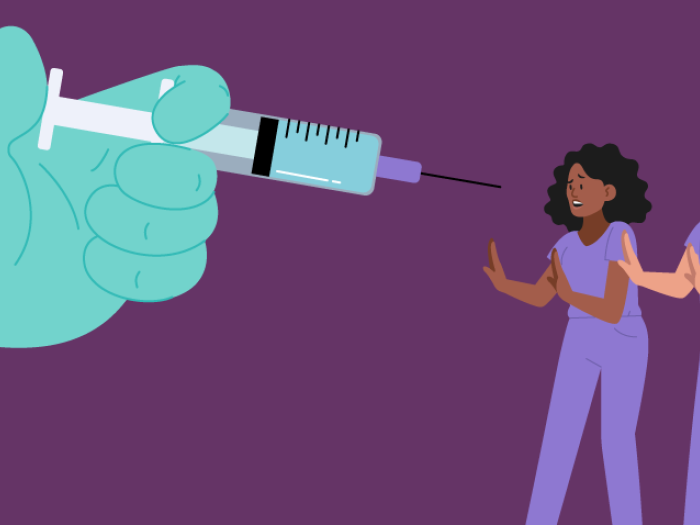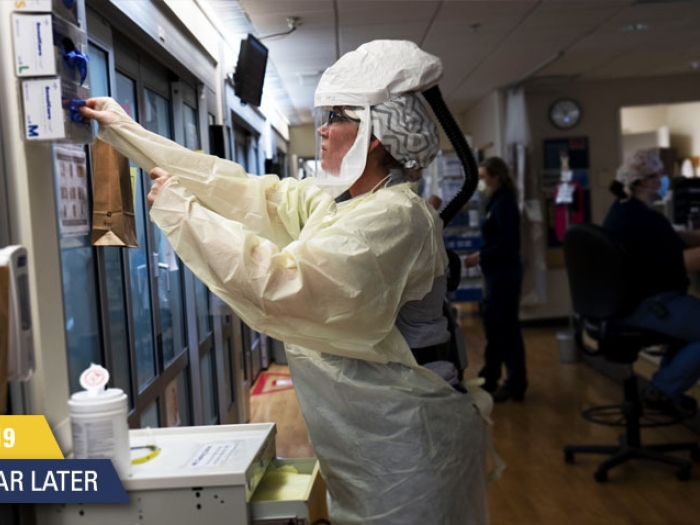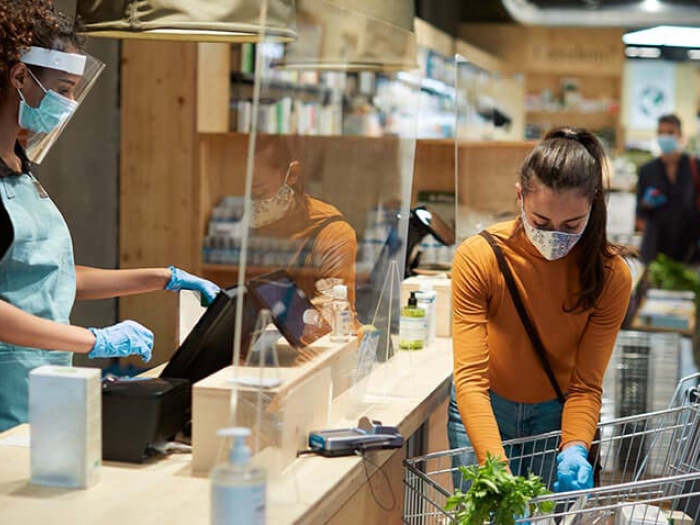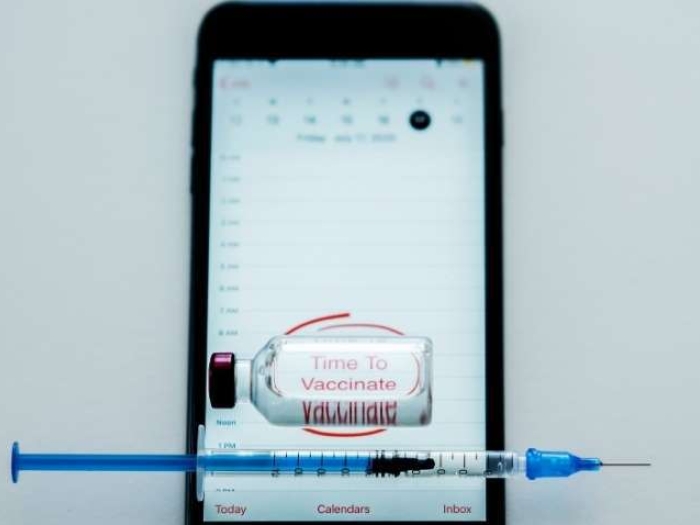A University of Michigan survey reveals more.
10:16 AM
Author |
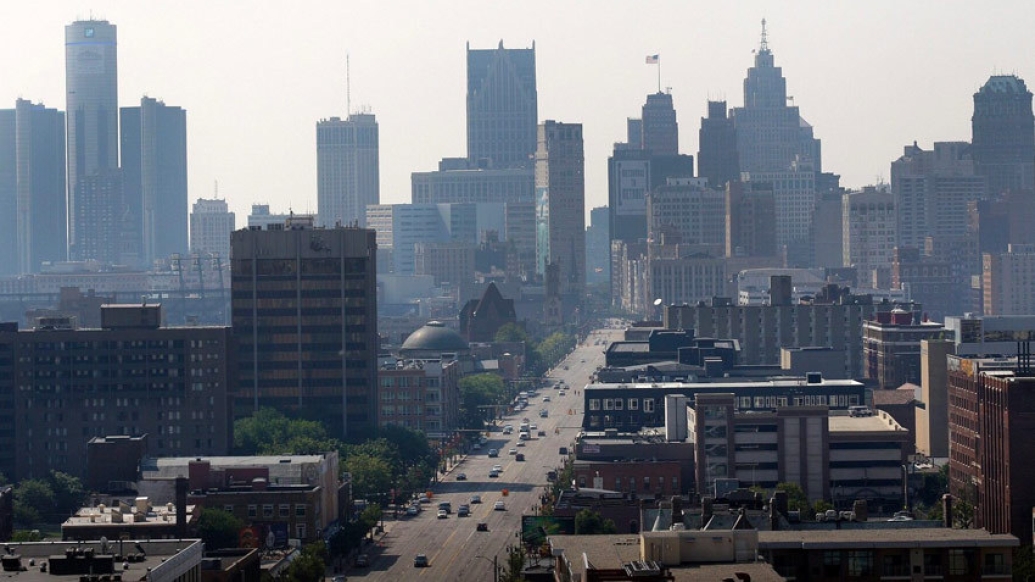
About half of adults living in Detroit are not yet fully vaccinated against COVID-19, according to data just released from a University of Michigan survey.
Among Detroiters who haven't received any doses of the COVID-19 vaccine, nearly 8 out of 10 cited concerns about the safety of the vaccine among their reasons. A similar number of unvaccinated Detroiters, 78%, also reported that concerns about side effects were among the reasons they had not gotten vaccinated.
In general, unvaccinated Detroiters were far less likely to say they trust the government's ability to ensure the safety of the vaccine (51%) than those who have already been vaccinated (6%). When asked about the single, "main reason" Detroiters have not been vaccinated, safety concerns were the most common reason offered (29%). According to the representative survey of Detroit households conducted by U-M's Detroit Metro Area Communities Study, concern about side effects was a slightly less important factor, with 22% of respondents saying it was the "main reason" they had not gotten the COVID-19 vaccine.
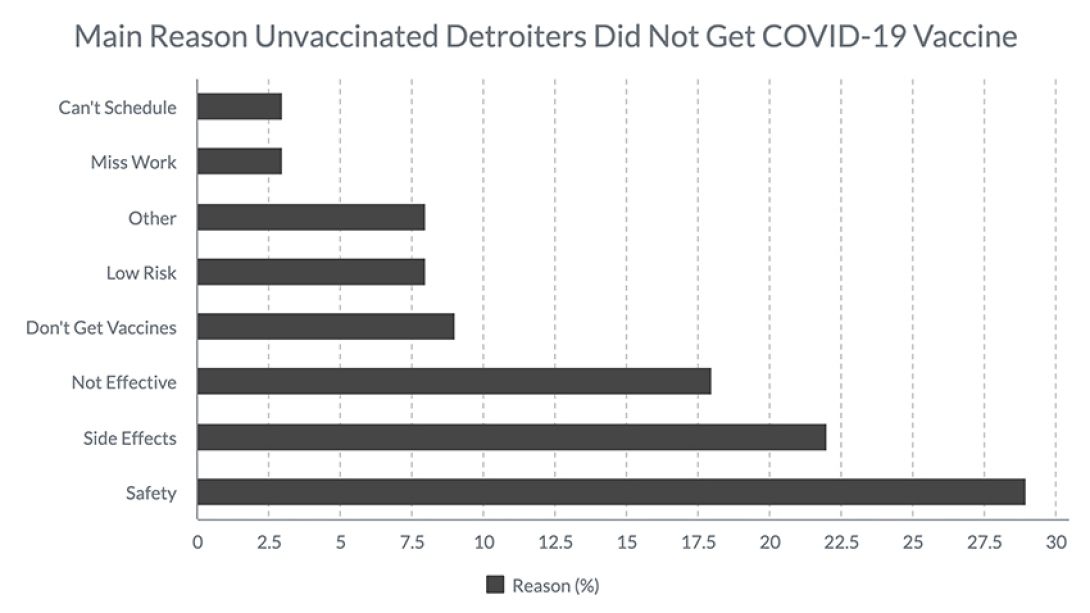
While unvaccinated members of all ethnoracial and age groups were primarily concerned about the safety and the side effects of COVID-19 vaccines, there was some variation in how members of different ethnoracial and age groups prioritized other concerns. Black (19%) and Latino (16%) residents were more than twice as likely as white (6%) residents to report that they did not get a vaccine due to concerns about the effectiveness of the COVID-19 vaccine. Residents under 40 were also more likely than those between 40 and 64 to avoid getting the vaccine because they felt their risk of getting COVID-19 or getting seriously ill from COVID-19 is low.
Given these concerns, the U-M survey also asked respondents whom they trust for information about COVID-19. Among unvaccinated Detroiters, news media were, by far, the least trusted sources for information on COVID-19. Only 10% of unvaccinated Detroiters said they placed high trust in the news media for this information. On the other hand, about one-third of unvaccinated Detroiters reported that they trusted their doctors a great deal for information on COVID-19.
"With COVID-19 cases rising again in Michigan and public health officials warning about a pandemic among the unvaccinated, these data highlight that trust, and not access, is the main factor deterring Detroiters from getting vaccinated at this stage. These findings also illustrate that more personal appeals to get vaccinated are more likely to be persuasive than mass appeals through news media," said Elisabeth Gerber, professor of public policy and political science and research associate in the Center for Political Studies at the U-M Institute for Social Research.
Importantly, the survey results demonstrate that vaccine hesitancy is surmountable. More than 1 in 3 residents (34%) who reported being unlikely to get vaccinated between January and March 2021 have since received at least one dose of the vaccine.
"Our data call attention to opportunities to continue increasing vaccination levels across the city," said Jeffrey Morenoff, one of the faculty research leads for DMACS, professor of public policy and sociology, and research professor at U-M's Institute for Social Research. "Many residents who told us in previous waves that they were unlikely to be vaccinated have in fact gotten a vaccine shot, suggesting that there is a persuadable population. We also find very few residents who start but don't complete their vaccine course, which means if we can get people in the pipeline we can keep building immunity in our communities."
The Detroit Metro Area Communities Study has been surveying representative samples of Detroiters since 2016. This latest wave of the survey was open from June 2 to July 9, 2021, and captures the views of 1,898 residents. To represent the views of the city as a whole, survey responses are weighted to match Detroit's population demographics.
This wave of the survey was conducted in collaboration with, and supported by, Michigan CEAL: Communities Conquering COVID, a transdisciplinary partnership of researchers and community leaders that aims to include marginalized communities in COVID-19 research and prevention in order to reduce health inequities across Michigan, funded by the National Institutes of Health (1 OT2 HL 156812).

Explore a variety of healthcare news & stories by visiting the Health Lab home page for more articles.

Department of Communication at Michigan Medicine
Want top health & research news weekly? Sign up for Health Lab’s newsletters today!
